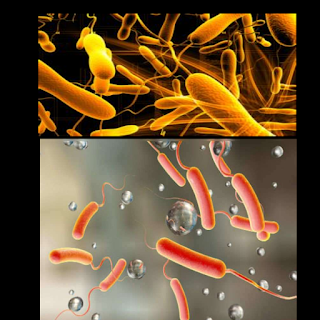Cholera is a diarrheal sickness caused by the bacteria Vibrio cholerae infecting the intestine. Every year, an estimated 3-5 million cases and 100,000 fatalities occur over the world. The infection is usually minor or without symptoms, although it can be severe in some cases. Without treatment, death can happen in a matter of hours.
Symptoms of Cholera
Vibrio cholerae is the bacteria that causes cholera. The majority of persons who are infected do not develop symptoms, and those who do have mild to moderate symptoms, according to the World Health Organization (WHO).
Approximately one out of every ten people who contract cholera will develop severe symptoms. If these symptoms are not treated effectively, death can occur within a few hours.
According to the WHO, Vibrio cholerae takes between 12 hours and five days to incubate in the body before generating symptoms.
Symptoms usually develop two to three days after contact to the bacteria, according to the CDC.
The following are some of the signs and symptoms of cholera infection:Diarrhea
Vomiting and nausea,Lethargy or sleepiness
Dehydration,Muscle spasms,The heart beats quickly.
Deficiency in electrolytes
Excessive thirst and insufficient urination
Dry skin, dry mucous membranes (such as the inside of the nose or eyelids), and dry mouth are all symptoms of dehydration.
Diarrhea produced by cholera usually occurs suddenly and can quickly dehydrate a person to deadly levels. Cholera-related diarrhea might be difficult to distinguish from diarrhea produced by other conditions, although cholera-related diarrhea may seem pale and milky.
In the early days of cholera, nausea and vomiting are common and can linger for hours.
Cholera causes severe diarrhea and vomiting, which can lead to dehydration within hours of the onset of symptoms. Dehydration from cholera can cause a 10% or more loss of body weight in extreme cases.
Irritability, weariness, sunken eyes, dry mouth, excessive thirst, dry and shriveled skin, as well as lack of urination, low blood pressure, and abnormal hearing are common signs of cholera dehydration.
Cholera is a disease that can be prevented.
Cholera is commonly transmitted through food and due to inadequate hygiene. Cholera can be avoided by taking a few basic precautions.
Good hygiene is essential for preventing illness transmission.
When visiting locations where the disease is endemic, it's critical to remember to:
Only eat fruit that has been peeled.
Salads, raw fish, and undercooked vegetables should all be avoided.
Make sure the dish is fully cooked.
Make sure the water is bottled or boiled, and that it is safe to drink.
Avoid eating street food since it may contain cholera and other infections.
Before visiting a nation where cholera is common, travelers should educate themselves about the disease.
If you have symptoms like leg cramps, vomiting, or diarrhea while in a community where the disease is present, you should seek medical help right once.
frequent, but the only method to confirm the diagnosis is to identify the O1 or O139 bacteria in a stool sample.
Early detection can lead to speedier treatment and isolation of affected people, which can aid in outbreak control.
Antibiotic therapy and hydration are also indicated (15, 23-25). Patients who are severely or moderately dehydrated, as well as those who have lost a substantial volume of stool during rehydration therapy, should be given antibiotics. All hospitalized patients are also advised to take antibiotics. Antibiotics should be chosen based on antibiotic susceptibility patterns found in the area.
Doxycycline is the first-line medication for adults in most countries (23, 25), and azithromycin is the first-line treatment for pregnant women and children (15, 24). Trimethoprim-sulfamethoxazole (TMP-SMX), erythromycin, and ciprofloxacin are also effective against V. cholera. Compared to erythromycin and ciprofloxacin, azithromycin is more effective (23-25). Antibiotics are not recommended as a cholera prophylactic according to any standards. Antibiotics should be given together with rigorous hydration, according to all guidelines.
A single 300 mg dose of doxycycline has been proven to be equivalent to three days of tetracycline treatment. In endemic and epidemic cholera conditions, V. cholerae has been found to be resistant to tetracycline and other antimicrobial drugs. Resistance can develop over time as a result of chosen mutations or from the widespread use of antibiotics for prophylaxis in asymptomatic people (15, 23-28). Antibiotic resistance has been seen in earlier outbreaks when prophylaxis for cholera patients' household contacts was used. It's been suggested that taking antibiotics can help prevent secondary cholera transmission (26).






0 Comments